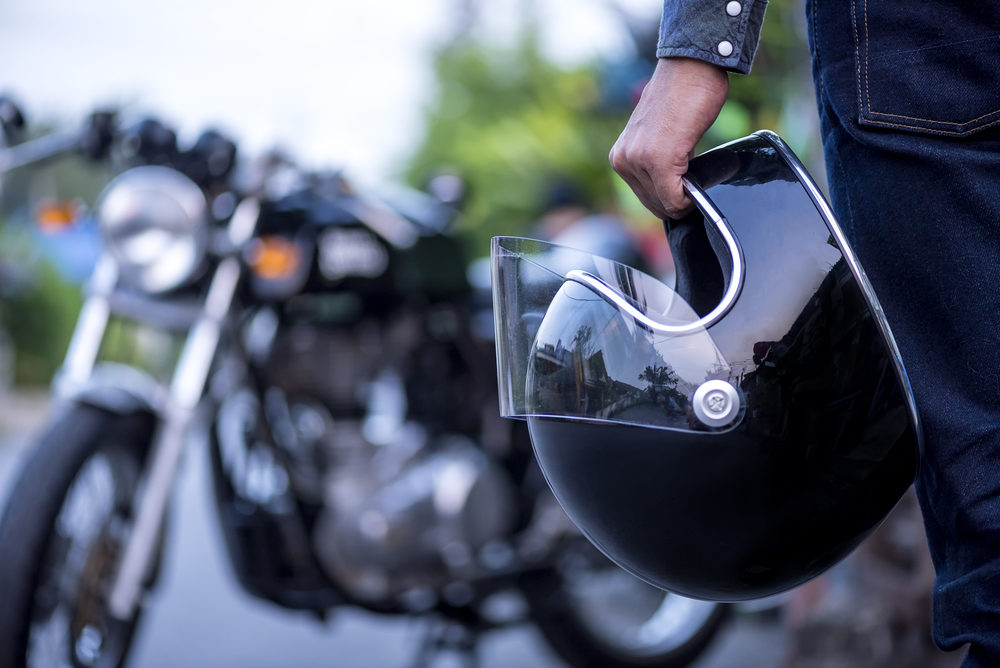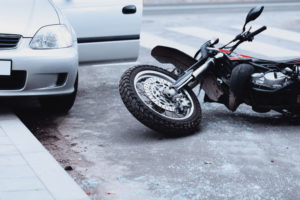
As freeing as driving a motorcycle can be, statistics don’t lie. Of the more than 36,000 motor vehicle fatalities in 2019, 5,014 were motorcyclists. That same year, the National Highway Traffic Safety Administration (NHTSA) estimated that motorcyclists were almost 29 times more likely to be killed per mile traveled than those in cars.
Simply put, motorcycle drivers are extremely vulnerable on highways and roads across the nation, including in New Jersey.
Over half of motorcycle crashes in New Jersey occur at intersections, and even more are caused by drivers who don’t see the motorcycle before it’s too late. Beyond being difficult to see and without the protection of a vehicle, seatbelt and airbag, motorcyclists share the road with drivers who are more distracted than ever.
With risk of death, traumatic brain injuries (TBIs), and other short- and long-term injuries caused by motorcycle accidents, it’s crucial that riders obey the law and protect themselves to the best of their ability. In New Jersey, this includes wearing a Department of Transportation (DOT) approved helmet.
New Jersey’s Motorcycle Helmet Law
There’s a greater chance of serious and fatal injuries for motorcycle drivers who don’t wear a helmet. In fact, riders who go without this protection are three times more likely to die from head injuries than those wearing a federally approved helmet.
But the alarming facts don’t end there. One in every five motorcycle accidents cause head or neck injuries, and the symptoms and complications associated with these types of injuries are vast. Given the risks, and that motorcycle drivers are vulnerable to serious injuries even in low-speed and single vehicle crashes, it’s important to follow the law.
New Jersey’s Helmet Law states that all motorcycle drivers and passengers must wear a properly fitted, DOT approved helmet. These types of helmets have a chin or neck strap, are reflective on both sides and have an official DOT label on the back.
While protective gear like a proper helmet, defensive driving, and other safety strategies can limit injuries and even prevent crashes at times, accidents happen – and some are fatal. There were 53 motorcycle fatalities in New Jersey in 2018.
Brain Injuries from Motorcycle Crashes
There are several common injuries that motorcycle drivers suffer when in an accident, including traumatic brain injuries (TBIs), spinal cord injuries, broken ribs and limbs, road rash, and whiplash. Many are severe, but brain injuries cause more than 60% of motorcycle deaths. Since the proper use of a helmet reduces the risk of death by 30% in motorcycle accidents, helmets are why thousands of riders have survived a crash.
The benefits of wearing a DOT-approved helmet are clear. According to New Jersey’s Department of Law & Public Safety, when motorcycles crash at speeds less than 30mph, the number and severity of head injuries are cut in half when the rider wears a helmet.
Compared to someone in an enclosed vehicle, motorcyclists are much less protected in an accident. They could suffer TBIs in situations where there’s little or no harm to the driver and passengers in the car or truck involved in the crash.
How to Pick a Motorcycle Helmet
Helmets can provide lifesaving and injury-limiting protection for motorcyclists, but they must be chosen and worn properly. If a motorcycle helmet does not meet the legal requirements in New Jersey or the rider doesn’t do up the chin strap, there’s a greater risk of injury or death.
When selecting a motorcycle helmet, it must be federally approved by the Department of Transportation (DOT) and be fitted for the rider or passenger who uses it. Sharing a helmet with someone who has a smaller or larger head will mean it’s not properly fitted for both people. Because of this, the protection it provides will be inadequate, and whoever it’s not fitted to is breaking the law.
Identifying approved helmets is easy; there’s a label on the back that says “DOT.” If you’re unsure if your helmet meets legal requirements, use this motorcycle helmet resource guide to find out.
Safety Tips for Motorcycle Drivers
As a motorcycle driver, safe driving habits, protective wear and gear, and proper vehicle maintenance could save your life. New Jersey motorcyclists should:
- Wear a DOT-approved helmet.
- Wear protective clothing and colors that increase visibility; shoes should come above the ankles, and long pants and long sleeves should be worn (leather is best).
- Use turn signals and headlights.
- Stay out of blind spots.
- Approach intersections with caution.
- Keep back from other vehicles to allow room for emergency braking.
- Properly maintain their motorcycle, including sufficient tire treads.
- Use extra caution in poor weather conditions.
Many accidents are unavoidable, but the use of safety measures could at least limit the seriousness and types of injuries sustained in a motorcycle crash. In the best cases, helmets prevent brain injuries and save lives.
New Jersey Motorcycle Accident Attorneys Help Injured Riders
New Jersey law mandates all motorcyclists and passengers to wear a federally approved helmet. But death, as well as injuries that are serious and minor, short- and long-term, still occur. From the weather and time of day to the location and actions (or inaction) of other drivers can all contribute to or cause motorcycle accidents.
If a crash occurs, contact an experienced New Jersey motorcycle accident attorney to discuss your options. You could have a valid legal claim whether or not a helmet was worn. The team at D’Arcy Johnson Day has extensive knowledge and experience helping injured motorcyclists in various situations. Our attorneys work diligently to help injured motorcycle drivers seek damages to cover medical costs, pain and suffering, lost wages, and disabilities resulting from an accident. If injuries were fatal, families might also have grounds for a claim. Contact us toll-free at 866-327-2952 or fill out our online contact form for a free legal consultation.

From sexual abuse matters to personal injury and workers compensation, Jessica brings a wealth of experience to her practice at D’Arcy Johnson Day. Her fluency in both English and Spanish enables her to help so many members of the community, as she focuses on accident and personal injury cases, work injuries, medical malpractice, immigration, criminal law, and municipal court proceedings among other areas of practice.














Comments for this article are closed.